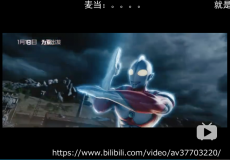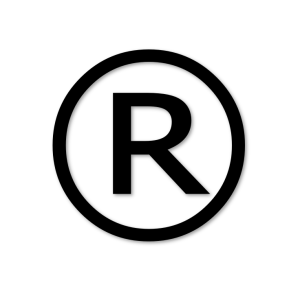
On March 13 2019, the Japanese government reportedly gave up submitting an amendment of copyright law to the Diet. (Please read “Japan to amend copyright law to combat piracy” for the proposed amendment.) It was specifically for anti-piracy, but it generated strong public reaction to the expansion of punishment against downloading of pirated copies. It is very rare for the government to stop the submission at this stage. In fact, content creators, such as The Japan Cartoonists Association, also have expressed concern about the proposed amendment. For whom was the anti-piracy measures? The problem is that the consensus-building process was not appropriate in this case. The government just paid attention […]

On March 1 2019, the Japanese government announced that it submitted a bill to the Diet to amend the laws of patent, utility model, design and trademark. The major part of the amendment lies in the patent law and the design law. And we reported most of them in the previous articles. But we would like to pull them together here to show the outline of the amendment of Japanese patent law and design law for your reference. Patent Law Introduction of inspection procedure. Courts will be able to issue the inspection order, in response to the patent holder’s motion, by which neutral experts inspect the facility of the alleged infringer to […]
We previously reported that the Japanese government initiated a blockchain project for content management. Finally, the government has set up a budget to develop a blockchain-based content service platform. This platform allows for monetization of derivative works. It records the relationship between contributors of an original content and its derivative works. Also, it enables to distribute income from the contents to the contributors. A smart contract will help to manage the permission of creating derivative works and the income sharing. The government expects this platform to create a new content market. Conceptual scheme of the service platform The attached chart shows the conceptual scheme of the service platform disclosed by the government. Two […]

Piracy is a serious problem. Piracy causes heavy damage to copyright holders and content business. The amount of damage for manga and animation in Japan is about JPY 200 billion (USD 1.8 billion), according to a government survey in 2014. In order to solve this problem, the Japanese government tried to legislate piracy website blocking. However, the government had to give up the legislation for that (See here about this). Because it encountered strong opposition, considering infringement on the constitutionally guaranteed secrecy of communication. Therefore, the government is going to implement an alternative measures to combat piracy. The report published on February 4 2019 and approved by the advisory committee on […]

Ultraman, it’s one of Japan’s superheros like America’s Superman. A copyright holder of Ultraman, Tsuburaya Productions has been in dispute with Chinese production companies which produced and released a film featuring Ultraman in 2017. These Chinese companies now released another film featuring Ultraman. In response to this, Tsuburaya Productions made a statement on January 17 2019 that “we will take all necessary legal steps to protect our legal rights.” (The featured photo is a scene in the film trailer). This case is actually not so simple like typical Chinese copycat cases. The disputes began with a Thai businessman (Chaiyo Productions), who had friendship with a former president of Tsuburaya Productions, claiming […]

We Japanese often say “お変わりありませんか?(okawari-arimasenka?)” that means, in English, “Nothing has happened (or everything remains unchanged)?” to someone whom we meet after a long interval. No change is a good thing in Japanese culture. I’m just wondering if we can change such a greeting to something by which we can expect or accelerate change. JPO commissioner Naoko Munakata mentioned the necessity of improvement of Japanese IP litigation system and demonstrated the high level of interest, in an opening speech for Global IP Strategy Forum 2019 which was held on January 28 2019 in Tokyo. However, I have seen a difference of opinion between SMEs and large enterprises, a conservative court, […]

The previous article covered a failure of legislation for piracy website blocking due to legal considerations of constitutionally guaranteed secrecy of communication. Now the secrecy of communication is likely to apply to foreign platform providers, especially to big tech companies called GAFA (Google, Amazon, Facebook and Apple), according to a draft document distributed in an advisory committee meeting which was held on January 21 2019. The scope of the secrecy of communication covers not only the communication content but also the date and time of the communication, the identification of communication parties, and everything which can be used to infer the semantic contents of the communication. Therefore, it may make an impact […]

Piracy website blocking has been one of the most controversial topics in Japan. In April 2018, the government decided on a policy to legislate for piracy website blocking by Internet providers, to combat piracy websites with copyright infringing content of manga, animation etc. However, it has been strongly opposed by lawyers and academics out of fear that it is likely to infringe on the constitutionally guaranteed secrecy of communication. Accordingly, the government reportedly has decided to postpone the legislation, and instead it is considering alternative measures – e.g. regulating leech sites which guide users to piracy sites. It is rare (at least in the intellectual property field) that the government […]

Satoshi Watanabe contributed an article to a journal for Japanese IP professionals “Patent News” published by Research Institute of Economy, Trade and Industry. It gives a quick summary on how to use patent information especially for patent monetization. This is a two-part article, the first part was published on January 10 2019 and the second part will be published in February 7. If you have a chance, please take a look at it (please note that only Japanese edition is available).

Happy New Year! In 2019, there is a big event in Japan. The current crown prince ascends to the throne on May 1. In conjunction with that, Japan’s era name is also changed. Reportedly, the new name will be announced on April 1, one month prior to the enthronement, to ease the transition including necessary system update and other preparation. From intellectual property perspective, names of goods or services that are just recognized as the era name are not allowed to register trademarks in Japan, because of lack of distinctiveness. The names combined an era name and other non-distinctive word (e.g. generic names) are also not allowed to register trademarks. […]





